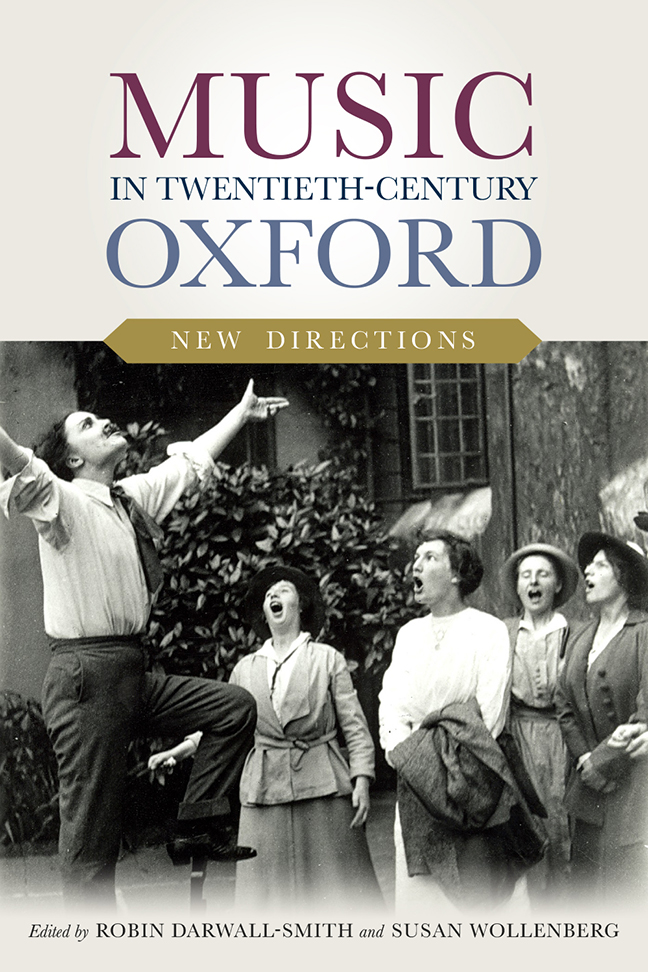6 - Music in the Oxford Women's Colleges, 1879–1939
Published online by Cambridge University Press: 09 January 2024
Summary
After sketching the background to the emergence of the women's colleges, we present two central case-studies of the first such established in Oxford, Lady Margaret Hall (LMH) and Somerville. These are followed by a section that brings in St Anne’s, St Hilda’s, and St Hugh’s, and focusing particularly on initiatives linking the women's colleges. In our epilogue we refer to the later decades of the century, noting the move towards mixed colleges – arguably the most significant change in the University's twentieth-century history.
Surviving concert programmes, letters, and diaries, together with University and college magazines, memoirs, and biographies, record a range of activities including chapel music, musical societies, and dramatic productions, as well as women's involvement in intercollegiate and university music-making.
Themes running through the chapter reflect concerns that have surfaced in the growth of women's studies, such as separatism versus integration. Others relate to the production, consumption, and reception of music, addressed in recent scholarship on the role of music in society, and the processes, people, and contexts allied to its cultivation. Ruth Solie's idea of ‘everyday’ musicology informs our approach here.
The Foundation and Early Development of the Women's Colleges
A news item headed ‘A New Movement in Oxford’, dated ‘Westminster, 24 February 1912’, observed:
Socially, if not politically, Oxford is as conservative as she is reputed; it is just for this reason that acknowledgement should be made of any decided advance on her part. The prejudice which debars women stu-dents from taking degrees appears to be weakening; and, judging from the event here to be noticed, the pernicious view that mutual respect is increased by the seclusion of the sexes has almost disappeared.
The event was a ‘mixed debate’ on women's suffrage held jointly by a women's and a men's college, Somerville and Balliol, ‘the first of its kind ever held in Oxford, and certainly it will not be the last’. The motion: ‘That this House is resolved that in matters of franchise no distinction should be made between man and woman’, was carried by 86 votes to 26.
The founding of the women's colleges in Victorian Oxford was a ‘decided advance’ in the University, remarkable in its time and far-reaching in its effect. LMH and Somerville Hall were established in 1878–9 in the wake of a move towards improved educational opportunities for women in Britain. Reactions to initiatives proposed at various stages were not uniformly favourable.
- Type
- Chapter
- Information
- Music in Twentieth-Century OxfordNew Directions, pp. 94 - 118Publisher: Boydell & BrewerPrint publication year: 2023

